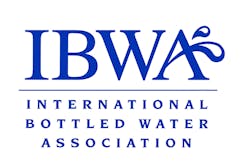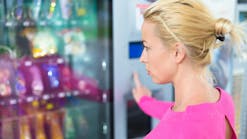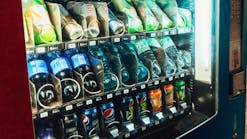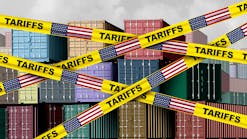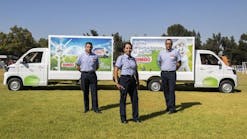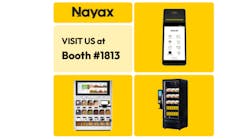Consumers Reaffirm Bottled Water Is America’s Favorite Drink
Source International Bottled Water Association
Alexandria, VA – Bottled water is the No. 1 beverage product in the U.S., by volume, for a second year in a row, the International Bottled Water Association (IBWA) and the Beverage Marketing Corporation (BMC) announced.
Bottled water volume grew to 13.7 billion gallons in 2017, a 7 percent increase over the previous year.
The distance between bottled water and carbonated soft drinks continues to widen as consumers increasingly choose bottled water instead of soda. Carbonated soft drink sales decreased for the thirteenth consecutive year, according to the most recent numbers from BMC.
Bottled water sales now total $18.5 billion, an increase of 8.8 percent. Per capita consumption exceeds 42 gallons of bottled water, a 6.2 percent increase. Meanwhile, the average annual intake of carbonated soft drinks has slipped to 37.5 gallons, BMC statistics show. Beverage Marketing predicts bottled water will climb higher than 50 gallons per capita within just a few more years.
Within the bottled water category, all segments grew in 2017:
- Domestic non-sparkling increased 5.5 percent.
- Domestic sparkling increased 27.5 percent.
- Imported water increased 9.2 percent.
- Home and office delivery (3 and 5-gallon size bottles) increased 1.3 percent.
“Bottled water’s rocket-like rise in popularity coincides with pronounced shifts in consumer preferences for refreshment and rehydration. As the quintessential portable and affordable beverage, bottled water introduces new usage occasions and habits. Suitable for consumption at any time of the day or night, and not necessarily in need of being kept ice cold, bottled water simply is the preferred beverage not only for consumers aiming to reduce caloric intake or lessen artificial sweetener usage but also for consumers of all kinds,” according to Michael C. Bellas, BMC Chairman and CEO.
“Healthy, convenient, and safe, bottled water is America’s favorite packaged water for many reasons,” says Joe Doss, IBWA president and CEO. “Research and polling indicate people are continuing to make the switch from other packaged drinks to bottled water. Some of these reasons include:
- Bottled water is a healthy choice.
- Bottled water tastes great and is refreshing.
- Bottled water is convenient for on-the-go lifestyles.
- Bottled water has trusted safety and quality and is comprehensively regulated by the U.S. Food and Drug Administration (FDA).
- Bottled water packaging has a proven record of safety.
- Bottled water is sold in containers that are 100-percent recyclable.
- Bottled water has the lowest water and energy use ratio of all packaged beverages.
- Bottled water has a tiny water-use footprint. The entire industry uses less than 0.011 percent of all water used in the United States each year.
- Bottled water containers use much less PET plastic than soft drink containers (9.89 grams vs. 23.9 grams, on average for 16.9-ounce containers). Soda needs a thicker plastic container due to its carbonation.
BMC data from the past two decades shows that a large part of the sales growth for bottled water is the result of a “consumer shift” from sugar-sweetened beverages to bottled water, says Doss.
This new data is consistent with a Harris Poll conducted for IBWA that found more than 3 in 5 Americans (63 percent) say bottled water (still and/or sparkling) is among their most preferred beverages, followed by coffee (62 percent). Fewer Americans (58 percent) say soft drinks (regular and/or diet) are among their most preferred drinks.
Nearly all Americans (94 percent) believe that bottled water is a healthier choice than soft drinks, and 93 percent say bottled water should be available wherever drinks are sold.
“Amid worries about obesity, diabetes, heart disease, and other health matters, bottled water’s lack of calories and artificial ingredients, convenience, and refreshing taste attracts health-conscious consumers,” says Doss.“As some consumers are becoming wary of artificial sweeteners, they are abandoning diet offerings, as well as regular soda, and instead are switching to bottled water.”
The bottled water industry is utilizing a variety of measures to continue reducing its environmental impact. Many bottled water companies already use recycled plastic in their bottles. Some are producing 100-percent recycled PET plastic bottled water containers, he says.
“Bottled water’s environmental footprint is the lowest of any packaged water, according to a life cycle assessment conducted by Quantis,” says Mr. Doss.
“When it comes to overall water use, the bottled water industry is actually a very small and efficient water user. Bottled water uses only 0.011 percent of all water used in the United States.” Bottled water also has the lowest water- and energy-use ratios of all packaged beverages. On average, it takes only 1.32 liters of water to produce 1 liter of finished bottled water (including the liter of water consumed), which is the lowest water-use ratio of any packaged beverage product. And on average, only 0.24 mega joules of energy are used to produce 1 liter of bottle of water.
Mr. Doss says the bottled water industry works hard on a number of fronts with recycling advocates, communities, and beverage and food partners to help increase recycling rates. All bottled water containers are 100 percent recyclable (even the cap), and, as an industry, it supports strong community recycling initiatives and recognize that a continued focus on increased recycling is important for everyone. In addition, bottled water containers are the most common item in curbside recycling programs, recycled at a rate of 53.85 percent. And the industry is always looking for ways to strengthen existing recycling programs and help to expand recycling efforts ever further. However, even when they are not properly recycled, bottled water containers make up only 3.3 percent of all drink packaging in U.S. landfills. Plastic carbonated soft drink containers make up 13.3 percent, and aluminum cans make up 7.9 percent.
Bottled water is comprehensively regulated by FDA as a food product, and FDA regulations governing the safety and quality of bottled water must, by law, be as protective of the public health as the Environmental Protection Agency (EPA) standards for tap water. And, in some very important cases, such as lead, bottled water regulations are substantially more stringent.
BMC is a research, consulting, and financial services firm dedicated to the global beverage industry (www.beveragemarketing.com).
